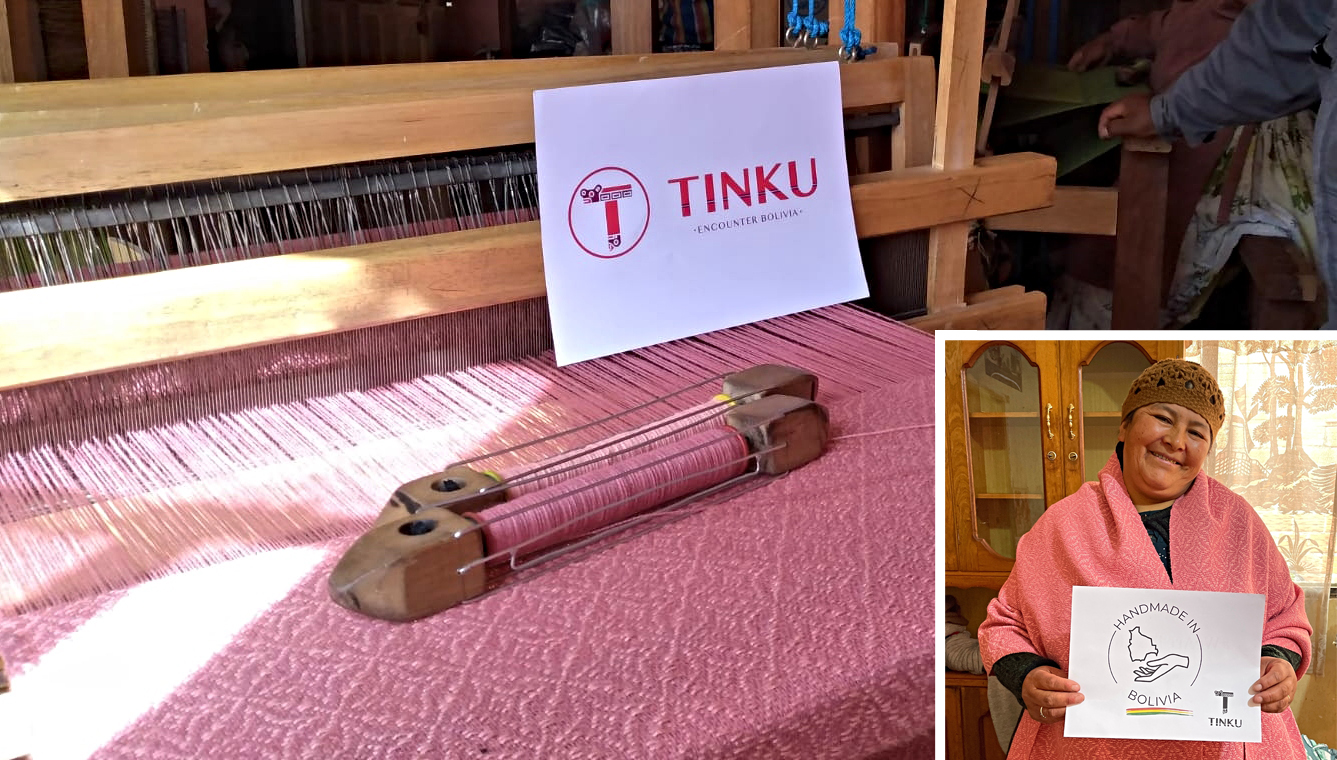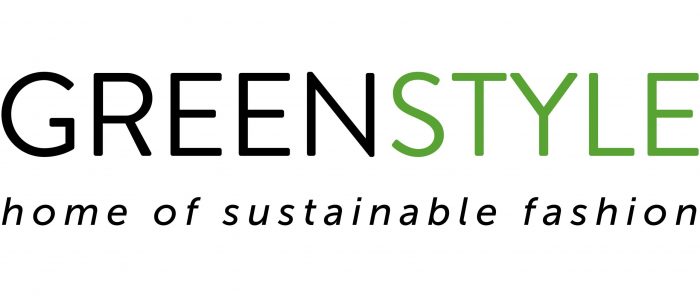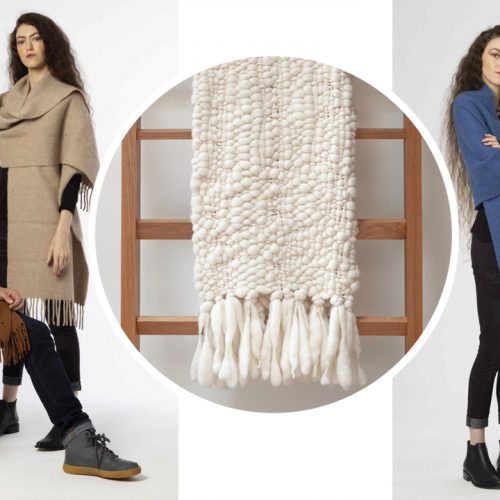The siblings Eliana Garrón Liendo and Gonzalo Garrón Liendo are behind the German-Bolivian label Tinku. Both born in the Bolivian Andes and endowed with an extra dose of pride in their culture, raw materials and products. While Gonzalo still lives in Bolivia, Eliana moved to Germany in 2013. There she did her master’s degree in food and biotechnology at the Technical University of Munich.
With Tinku, the Garrón Liendo siblings want to create a bridge between two worlds – their Bolivian home (La Paz) and Eliana’s home in Germany (Munich).
Because since the pandemic, interest in alpaca products has declined sharply within Bolivia. Together with the lack of tourism, this has led to alpaca breeders taking on other activities. With the weavers’ children migrating to the city, the Bolivian textile heritage, passed from parents to children, is in danger of dying out. Tinku tries to prevent this with his commitment.

Design, symbolism, materials and the special colors are characteristic of the Bolivian Andean fabrics. The history of the region and the culture lives on on them.
That is why Tinku works with local artisans of the Quechua and Aymara cultures, where weaving is passed on from generation to generation. The hand-woven and hand-knitted pieces are made using traditional techniques in the Bolivian Andes at an altitude of 3,600 m and are sold by Tinku in Germany. Made from 100 percent wool from free-ranging alpacas. The gold of the Incas. The lively Bolivian culture, which is preserved in the individual products, serves as inspiration for the fingerless gloves, headbands, beanies, stoles, scarves and blankets.
Weaving is not just an activity or hobby. It’s an art, an ethnic practice, and a way of expressing yourself.
Tinku not only wants to carry the textile heritage of indigenous artisans from the Andes out into the world. Tinku is about supporting craftsmen from socially disadvantaged backgrounds. With the sales in Germany, jobs can be created in Bolivia and a positive contribution can be made to the lives of the weavers. For Eliana and Gonzalo, fair fashion doesn’t just mean working with natural fibers such as alpaca. They understand fair fashion as the self-imposed obligation to support artisans, cooperatives and local designers. Using your own work to fight poverty and inequality. Together, the founding duo finds ways to create projects that improve the lives of everyone involved.

For us, social commitment means ensuring jobs/income for our weavers.
Until 2022, Tinku has collaborated with the only Bolivian cooperative for the production of alpaca wool, created from the union of 1200 llama and alpaca breeders. The main goal of the cooperative is to promote the sustainable development of llama and alpaca breeding by spinning and marketing the wool and the products made from it. Due to management problems, the work of the cooperative was suspended. Together with the weavers, Tinku found a way to design, manufacture and export the products and in this way ensure the craftsmen’s income.
That’s what Tinku is all about:
Create jobs
Guarantee of a fair wage
Female empowerment
Preservation of the ecosystem and the local environment
Preventing rural exodus
Promotion of sustainable consumption and lifestyles
Tinku is Quechua language and means “meet / encounter”
Tinku actually refers to a ritual in which, especially in the southern Andes, different communities meet and the celebrations begin with a dance. But Tinku also means fight and confrontation. The siblings chose this name because their work is about encounters and cooperation on an equal footing and they have dedicated themselves to the fight against poverty, inequality and injustice.







